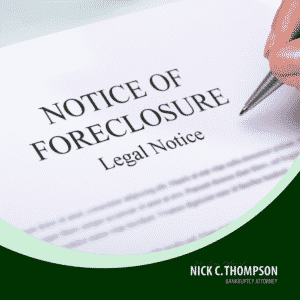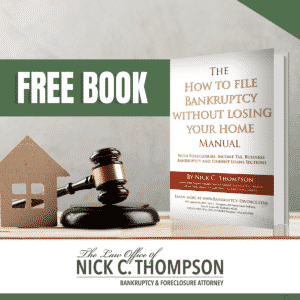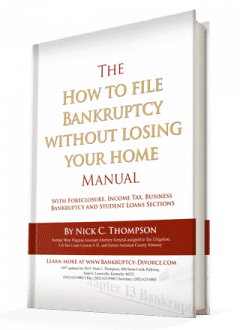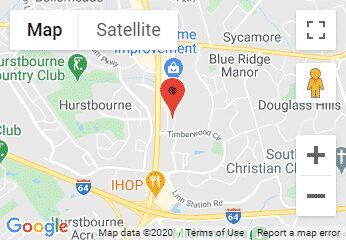It is essential to do a little research to understand the Kentucky Foreclosure Law Process. This includes federal laws such as RESPA, TILA, and the CFPB guidelines. Many Kentucky homeowners may go through the foreclosure process. This article is written to get you started in the right direction of understanding how foreclosure laws work. So, if you’re facing foreclosure, you are invited to continue reading to understand the foreclosure law better.
The first thing you need to know about the Kentucky foreclosure process is that foreclosures in Kentucky are court-ordered sales conducted by the circuit court master commissioner. Consensual liens like a mortgage voluntarily give the lienholder an interest in the property. The non-consensual liens include tax, mechanic, and judicial liens, which can also result in foreclosure.
The foreclosure law process for consensual and non-consensual liens are similar. However, many federal laws also govern it. For instance, we can strip judicial liens which are not consensual if it impairs your equity in a bankruptcy. However, we can also strip a second mortgage which is a consensual lien if there is no equity for the lien to attach. In Kentucky, lenders file foreclosures in the property’s county, which may or not be the county the owner lives in.
Understanding the Kentucky Foreclosure Law Process
In Kentucky, lenders and judicial liens foreclose on homes in Circuit Court. Interestingly, other states use a deed of trust to foreclose a home.
It’s also good to know that most foreclosures take about six months or less if done by default. However, cases can often take a year or more if you fight a foreclosure. The following are some points and terms to remember when doing your research.
- Judicial Foreclosure State: Kentucky requires a Court ordered foreclosure sale.
- Primary Security Instrument: Mortgage
- Timeline: Varies depending on the amount of litigation
- Right of Redemption: Yes
- Deficiency Judgments Allowed: Yes people can be responsible for the unpaid balance
Kentucky Foreclosure Laws – The Requirements of a Judicial Foreclosure
Judicial foreclosures require a court-ordered sale of the home. However, federal laws give you added support and rights during the whole process. You do have the right to redeem your home. You also have rights under RESPA and TILA. However, the borrower only gets a short time to respond to a complaint after it is filed. If the borrower fails to pay within that time, the Commissioner then advertises and holds a sale of the property.
Before the scheduled foreclosure date, there is an appraisal of the property. If the home sells for less than two-thirds of the appraisal value, the borrower has one year from the foreclosure sale date to redeem the property. The borrower does this by paying the selling price of the property plus a small percentage of the sale price. However, the bank almost always bids over this amount at the foreclosure sale to prevent redemption.
It is possible to obtain a deficiency judgment against the borrower for the difference between the amount the borrower owed on the federally backed mortgage loan and the foreclosure sale price. But only if the borrower is personally served with the lawsuit and then loses the lawsuit, or fails to answer. Please beware of Rescue scams claiming to help you stop a Kentucky foreclosure. Additionally, here is a timeline of the foreclosure process.
Continue to research Kentucky foreclosure laws and come back often for new information! Below, you will also find links to other articles about foreclosures in Louisville, Kentucky.
All You Need to Know About the Kentucky Foreclosure Process
The Lis Pendens Notice
Usually, a mortgage company files a Lis Pendens, which is a notice of pending litigation at the start of the case. The purpose is to notify potential buyers of the property pending litigation. Furthermore, this notice prevents the owner from transferring the property.
A Lis Pendens merely warns potential buyers the property has pending litigation. If the lienholder does not file the Lis Pendens, a good faith purchaser may take the property free of a mechanic, trustee, or judgment lien. If someone purchases the property after a Lis Pendens, the buyer has notice of the pending litigation, and the foreclosure continues.
The Foreclosure Complaint
Next in the Kentucky foreclosure process is the complaint but, filing the complaint with the circuit court is just the start to a lender obtaining a judgment and sale. In the filing, the plaintiff must include all parties that may have an interest in the property. This includes taxes claims, any spouse, other mortgages, and judgment liens. The necessary parties include anyone with a possible interest in the parties.
Typically, a plaintiff performs a title search to find any party that may have an interest in the property. The failure to include parties can cause the sale to have problems later. The Commissioner usually is very careful to insure the lender follows proper procedures.
The plaintiff must plead in the foreclosure complaint that the homeowners were in default A quality pleading includes the basis for foreclosure, such as nonpayment. Also, the note and mortgage payments frequently state the rights and responsibilities of the lien holder and homeowner. In the foreclosure complaint, the lienholder must explain or claim the following:
- The interest the plaintiff has in the property.
- That the owner is in default.
- An accurate legal description of the property.
- A request for a judgment against the owner and foreclosure sale of the property.
- Foreclosures attach the note and mortgage to the complaint as evidence along with any documents to prove any transfers
Keep the Home or Let It Go Back
When the mortgage company files the foreclosure with a history of the mortgage payments, the homeowner should first sit down and look at the home objectively. If the home has equity, the home fits the needs of the homeowner, and the mortgage is at a reasonable rate you may want to keep the house. In this instance, the homeowner wants to keep the house. To keep the house, the homeowner can file for Chapter 13 bankruptcy to catch up on the mortgage and stop the foreclosure.
Then, the homeowner can work on a loan modification, partial claim, or workout with the bank while the home is in Chapter 13. Filing an answer and discovery also allows the homeowner time to pursue alternatives such as selling the home.
If the home is not a good deal, then the homeowner typically wants to give himself time in the house so the family can make a smooth transition to a new home. It is also essential to avoid damage to your credit, a deficiency, and an income tax debt. To give yourself time you may want to defend the foreclosure by filing an answer, discovery, summary judgment, or request for mediation. The attorney should review the loan for RESPA and TILA violations along with many other possible defenses.
If the house must go back, the homeowner typically wants to defend the action to gain time by hiring a foreclosure lawyer to file an answer to the lawsuit. Discovery should follow no more than two months after the answer. Finally, the debtor may need to file a Chapter 7 bankruptcy to avoid a deficiency judgment and income tax debt.
Filing an Answer and Discovery
This is a crucial step in the judicial foreclosure process when facing financial hardship. Because there are over 120 different primary defenses, the mere filing of an answer and discovery may delay the judicial foreclosure process for years. Asking for discovery or a jury trial may postpone the matter for much longer. You do need to decide however at the start of the case do you want to litigate and delay or negotiate and save the home.
Filing an answer delays the foreclosure sale for about six months or longer. Filing discovery often delays the foreclosure for another six months or longer. Please note the Defendant homeowner must file discovery within two months after the answer. Together, an answer and discovery often delay the foreclosure sale for a least a year. Filing a Chapter 7 or 13 after that will delay it another six months. If the couple is married they can each file a Chapter 7 delaying it a year.
Filing a foreclosure answer or discovery late
A Kentucky property owner has only twenty days after service with the complaint to file the answer. A default judgment happens when Defendant fails to file a response. You may or may not be allowed additional time to file your response by showing a reason for the delay. But, a judge does not have to allow additional time. If you fail to respond I have seen a property sold within 90 days.
What often happens is; that most homeowners call the mortgage company or their lawyer, fail to file an answer, and then the mortgage company obtains a default judgment and requests a foreclosure sale date. Many Defendants fail to file the answer and dispute the complaint timely and properly. A Defendant admits the facts of a complaint if a Defendant fails to dispute and fight the foreclosure.
Homeowners may also attempt to file an answer with the Court. Due to their lack of knowledge, they will often admit they owe the debt, fail to raise defenses, and the property is often quickly sold. After failing to file an answer the mortgage company will promptly move for judgment and sell the property.
The Summary Judgment motion is a tool for a quick judgment when an answer admits enough facts to avoid a trial. Default and summary judgments are tools to win the lawsuit quickly. These motions are filed with supporting affidavits and evidence such as payment history, notes, and mortgages. Essentially they state there are no issues left to be argued.
 The Kentucky Foreclosure Law Process Default and Summary Judgments
The Kentucky Foreclosure Law Process Default and Summary Judgments
Obtaining a default judgment can happen within 30-days. A sale happens in less than 90-days if an answer is not filed. However, mortgage companies will often discuss your right to save the home with a mortgage modification workout or partial claim. A mortgage modification may not be your best option if rates have increased.
While you are trying to settle with them and obtain a modification or workout they may continue the process of selling your home. This process of dual tracking is improper but it happens. If you fail to use an attorney who guards for this the homeowner gives up several rights. If an answer or motions fail to raise issues and claims the home can be sold while you are attempting a workout with the mortgage company.
The judge issues a summary judgment when there are no facts in dispute. The judge applies the law and decides the case if the facts are clear and not disputed. So, the plaintiff immediately wins when Defendant fails to raise factual and legal issues properly and admits the debt is owed. You must have both legal and raise factual issues to be decided to delay foreclosure. The truth is, it takes time to sell a home or avoid foreclosure. Fighting a foreclosure or filing bankruptcy gives you that time.
Commercial Foreclosures and Receivership
In commercial foreclosures, the Court will often appoint a receiver. The receivers’ job is to take over and operate a business or property and to sell the assets for the benefit of creditors. If the lender proves the lender’s right to sell the real property, KRS 425.600 allows the Court to appoint a receiver to gather the assets and sell them. The receiver is to prevent the property or profits from being stripped, stolen, wasted, destroyed, or injured. Commercial loans often use receivers who report to the Court while selling or managing assets. However, receivership sales are usually worse than bankruptcy. That’s because receiver sales do not allow a debtor to use exemptions. Receivership sales leave the debtor less property, still liable for the debt after the sale, without control over the sale, and with fewer rights. A Chapter 13, 11 or 7 is often a better answer than receivership.
The Commissioner’s Foreclosure Recommendations and Sale
Circuit courts will often send the case to the Commissioner, who will make recommendations on issues to the Court. The Commissioner usually decides default and summary judgments. The Court must only agree with the Commissioner’s recommendations to enter a judgment. The deed transfers to the buyer at closing, but the buyer has an interest in the property as soon as the auction is held.
The Commissioner advertises the sale in an area newspaper once a week for three weeks and at the courthouse. These Commissioner Sales are at the Kentucky International Convention Center, Second Floor, 221 South 4th Street, at 10:00 AM, on Tuesdays, according to the Commissioner’s sale calendar. After the sale happens the homeowner loses all rights to the property and even filing bankruptcy will not reverse the sale. But there may be a right of redemption which is left.
Value and Redemption Amount of the Property
When the Commissioner receives property for sale, the property will be appraised by two disinterested parties. This appraisal determines the value and redemption amount of the property. The owner cannot redeem the property if it sells for more than the redemption value. A sale for more than the redemption value extinguishes the property owner’s right of redemption. The defendant has a short amount of time to pay the buyer the redemption price to recover the property.
In the Kentucky Foreclosure Law Process Timing is Everything to Stop the Sale
The homeowner can file a Chapter 7 or Chapter 13 bankruptcy up to the sale date, but it must be filed before the sale. The owner loses any interest or rights to the property after the sale happens. Filing a 13 one minute after the sale is too late. Failing to file a Chapter 7 or 13 before the sale also triggers a possible IRS debt.
Unfortunately, the homeowner will owe income taxes for any 1099-c filed after the sale and transfer. By filing a Chapter 7 or 13 before the sale you avoid any income tax debt and any deficiency. It also delays the foreclosure sale by about six months. During bankruptcy, the homeowner can again try a loan modification or workout.
At the sale, the purchaser makes a deposit, and the Commissioner files a report with the judge, asking for approval of the sale. Defendant continues to possess the home until the purchase is complete and the master commissioner issues a deed. After the sale, the master commissioner will pay his fees, and the property taxes, and the remaining funds will go to the creditors in the rank of priority. Funds first go to property taxes, second to mortgages, third to judgment liens, and the remainder to the homeowner.
Kentucky Foreclosure Law Process and Deficiency Judgments
The lienholder reports the deficiency in accord with Internal Revenue Service regulations. When he files the 1099-C, it creates a tax debt for the homeowner. The lienholder can obtain a deficiency judgment against the Defendant and collect the amount owed after the sale. It is becoming increasingly common to see debt buyers purchasing these deficiency debts and suing for the deficiency with interest and foreclosure attorney fees. Unfortunately, this judgment is valid in Kentucky for up to 20 years. You can renew judgments every 20 years.
Contact Us to Know More About the Kentucky Foreclosure Law Process!
So, if you have a foreclosure and need more information about the Kentucky foreclosure process, call my law firm today. I make sure to maintain the best attorney-client relationship. You can count on my services if you’re struggling to find foreclosure lawyers. Also, see my contact information below to get assistance instantly.
 Resources for Bankruptcy
Resources for Bankruptcy
Louisville, Kentucky Bankruptcy Forms
Learn About Louisville Short Sales
Kentucky Default Summary and Agreed Judgement
Property Tax Foreclosure Bankruptcy
How to Get Money Back from a Commissioner Foreclosure Sale
If you are considering bankruptcy, don’t delay because timing is crucial. I am here to help you. So, contact my office right away to start the conversation. Nick C. Thompson, Bankruptcy Lawyer: 502-625-0905.







